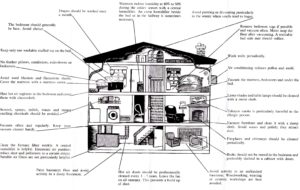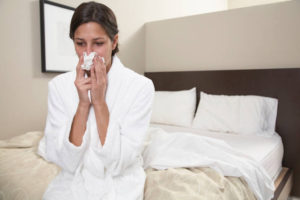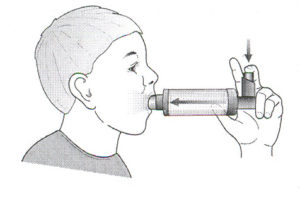 We happen to believe that allergies, sleep, diet and weight loss are all interrelated. This is why we are doing a series of post about dust control and sleep issues to help people understand these issues better. We are not doctors and do not have any medical knowledge. It is based on a lot of common sense that has been developed over the years in dealing personally with these issues. We hope that this information will help you.
We happen to believe that allergies, sleep, diet and weight loss are all interrelated. This is why we are doing a series of post about dust control and sleep issues to help people understand these issues better. We are not doctors and do not have any medical knowledge. It is based on a lot of common sense that has been developed over the years in dealing personally with these issues. We hope that this information will help you.
If it does please leave us comments. We are very concerned about dust control in your home. The picture in the left is a picture of a home with all of the points indicated where dust can be an issue for individuals suffering from allergies. it suggest what you can do about this dust in your home and how to get rid of it or at least decrease the impact of dust in your home. Note that you can click on the picture to enlarge it to be able to read it properly.
Dust Control in Your Home – Sources
We developed a list of these sources to help people understand where it all comes from. Here is a short list of sources of dust:
- Lint from clothes
- Flakes of dead skin from humans and pets in your home
- Dust tracked in from outside on your clothes
- Dust blown in through open windows
- Pollen blown in through open windows and on your clothes
- Poor filters on your furnace
- Air intake to the furnace
- Spores from mold that might be in your home
There are probably other sources; however these are the main ones for most people.
Dust Control in Your Home – Priorities
The picture that we have included shows all of the possible steps that you can take to try to manage the dust in your home. We happen to feel that although these are all good things to do and if you have severe allergies, you may want to consider all of them, there are some that provide better return for your time and money. We have divided them accordingly, however readers should look at this list from their own perspective and make their own decisions regarding which ones are more important to them. Here is the high priority list from our perspective:
- Avoid painting or decorating when windows are closed to avoid lingering smells
- Vacuum often using a central vacuum that has the canister located outside of the home
- Do not ever smoke inside the home
- Convert to a gas fireplace, clean regular fireplaces regularly
- Clean the furnace filter weekly
- Vacuum often
- Avoid chemicals and aerosol use in the home
- Do not use wool blankets
- Avoid feather pillows, comforters etc
- Keep the bedroom bare and avoid clutter to avoid dust catchers
- Wash the drapes once a month
- Keep indoor humidity at 40 to 50%
Here is a list of some of the things that should be considered if your are highly allergic to dust:
- Remove bedroom rugs
- Moist mop the hardwood floors
- Install hardwood floors and remove all rugs from the bedroom
- Wash walls regularly
- Air conditioning removes pollen and dust
- Vacuum the mattress and bed covers and also under the bed
- Clean lamp shades with a damp cloth
- Vacuum furniture, avoid polishes and waxes to avoid attracting dust
- Do not store books in the bedroom
- Avoid activity in an unfinished basement
- Clean hot air ducts every 3 to 5 years
- Paint basement floor to avoid dust buildup
- Install an electronic air filter on the furnace
- Cover hot air registers with cheese cloth
- If you must keep only one washable stuffed toy in the bedroom
This is a rather long list of steps to take to reduce dust in your home and also keep your home clean. Most people do not clean their homes to this level and do not need to if they are not allergic to dust and pollen. Every person will need to judge just how far they need to take dust cleanliness to get to a point where they can be comfortable and be able to deal with their allergies.
Good luck and focus on the things that will give you the best return for your time and your health. If you are allergic to pollen, never undress in your bedroom at night. Always undress outside of your bedroom to avoid bring pollen from your clothes into the room. You may even want to consider a shower to avoid bringing pollen on your hair into your bed.
For more information about dealing with allergies in your your home, click here.


 It is common sense that a central vacuums are better for your health with the canister / motor located outside. They are better for your health and for your allergies than almost any other vacuum! Why is this, the case you ask? The traditional vacuum that you use today is only as good as the filter. It captures a percentage of the dust and dirt that finds its way into your home.
It is common sense that a central vacuums are better for your health with the canister / motor located outside. They are better for your health and for your allergies than almost any other vacuum! Why is this, the case you ask? The traditional vacuum that you use today is only as good as the filter. It captures a percentage of the dust and dirt that finds its way into your home. Do you gain weight during allergy season? If you are allergic to golden rod, dust and mold, it is not over yet. Most people equate allergy season to the spring when there is a lot of pollen in the air. It can be equally bad for people in the late summer and fall due to pollen from golden rod, and the mold that is in the air from decaying leaves and grasses. If you gained weight in the spring or will gain weight in the fall, it is probably because you stayed inside more and avoid going out doors. Maybe you took the car every where instead of walking and going for a walk after supper was completely the wrong thing to do.
Do you gain weight during allergy season? If you are allergic to golden rod, dust and mold, it is not over yet. Most people equate allergy season to the spring when there is a lot of pollen in the air. It can be equally bad for people in the late summer and fall due to pollen from golden rod, and the mold that is in the air from decaying leaves and grasses. If you gained weight in the spring or will gain weight in the fall, it is probably because you stayed inside more and avoid going out doors. Maybe you took the car every where instead of walking and going for a walk after supper was completely the wrong thing to do. You might think that this is an odd title for a diet web site, however there is a link to diet as anyone with allergies knows well. Hotels have begun to figure this out. They are trying to tap into this particular market. Hope you get something out of this. If you can stay somewhere that focuses on providing clean allergy free rooms to their guests, isn’t that a great concept. The hotels attracting allergy sufferers will do well with many other customers too. Everyone likes a super clean room.
You might think that this is an odd title for a diet web site, however there is a link to diet as anyone with allergies knows well. Hotels have begun to figure this out. They are trying to tap into this particular market. Hope you get something out of this. If you can stay somewhere that focuses on providing clean allergy free rooms to their guests, isn’t that a great concept. The hotels attracting allergy sufferers will do well with many other customers too. Everyone likes a super clean room.